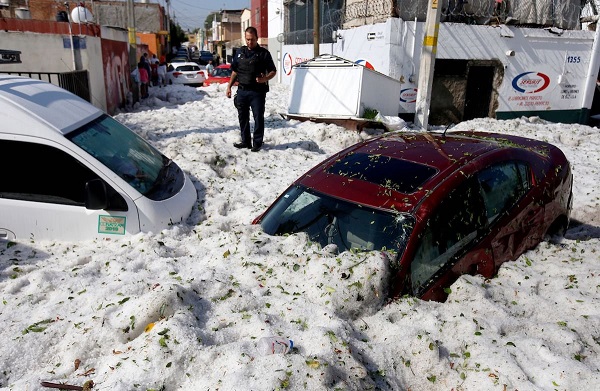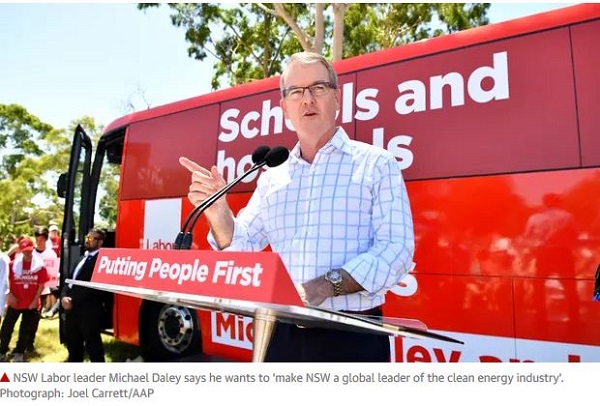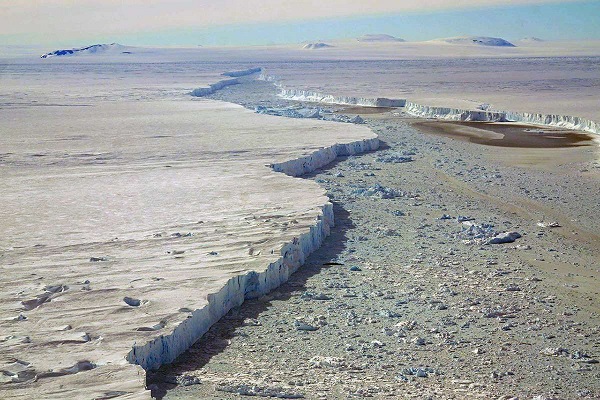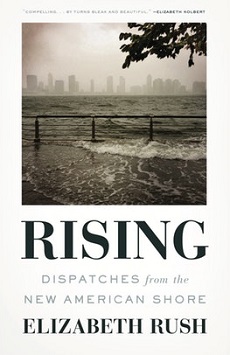1. Queensland electricity day-time prices to zero six days in a row
We’ve had unwelcome dry weather this ‘winter’ in Queensland but the good news is that electricity prices have dropped to zero six days in a row:
These posts are intended to share information and ideas about climate change and hence act as a roundtable. Comments rehashing whether human activity causes climate change are off-topic.
We’ve had unwelcome dry weather this ‘winter’ in Queensland but the good news is that electricity prices have dropped to zero six days in a row:

With France breaking heat records by nearly 2°C and 1.5 metres of hail fall on Guadalajara in Mexico, Australian blog Lethal Heating has been blogging a storm on the climate emergency. LH selects and republishes three articles per day, adding value by making some available that may be paywalled, and adding a list of links to relevant previously published articles.
Below I’ve linked to some recent articles. Continue reading Climate clippings 232: climate emergency edition
According to Sharon Kelly at Desmog, that is a quote from a speech in 1965:
The speaker was concerned that by the year 2000 the heat balance would be so modified as to possibly cause marked changes in the climate. Continue reading Climate clippings 231

On Monday the NSW opposition leader, Michael Daley, announced that if elected on 23 March, Labor would deliver seven gigawatts of extra renewable energy by 2030.
Climate stories continue to float across my viewing zone, especially lately in the New Scientist, which for us is loo reading. NS articles are usually pay-walled, so I’ll try catch up a bit.

There are lots of tipping points in ecosystems and the climate, and many are interconnected. That means the massive changes we are wreaking will have many unexpected consequences. Continue reading Climate clippings 229
That is the case in all major economies except Japan, according to BNEF. From RenewEconomy:
“In India, best-in-class solar and wind plants are now half the cost of new coal plants,” the report says, and this is despite the recent imposition of import tariffs on solar cells and modules. Continue reading Climate clippings 228
That was the headline in the dead tree version of the AFR. Bill Ferris is the outgoing Science and Innovation Australia chair. He says he didn’t find the Coalition government’s rewriting of the ACCC report to support coal-fired power a helpful signal, but:
“That ain’t going to stop and it won’t stop because a government is concerned about the electoral impact. Continue reading Climate clippings 227
The last Climate clippings was on July 2. Time to get back on the bike. Unfortunately this edition is not full of good news, apart from the prospect of eating the carcasses and droppings of bacteria feeding on hydrogen (see # 5). Next time I’ll try to catch up with some climate action.
How warm is it now? The simple answer is that it is warmer than the IPCC Special Report on 1.5°C told us, and it’s looking a bit like a fix. The Arctic News post IPCC keeps feeding the addiction tells how the baseline point for measuring warming has been cherry-picked and altered. And queries why they stopped at 2015, when the 2016 and 2017 temperatures were known. Continue reading Climate clippings 226
 A review by Dave Hage at Star Tribune of Elizabeth Rush’s new book Rising: Dispatches from the New American Shore says it is “a lovely and thoughtful book, so lyrical that you forget how much science it delivers.”
A review by Dave Hage at Star Tribune of Elizabeth Rush’s new book Rising: Dispatches from the New American Shore says it is “a lovely and thoughtful book, so lyrical that you forget how much science it delivers.”
Joe Romm’s article was also posted at RenewEconomy.
Last September I half-finished a post on this topic, with a paper by David Spratt and Ian Dunlop as the centre-piece. Their 28-page report on the state of climate science, action and politics entitled What lies beneath? The scientific understatement of climate risks is introduced as a post at Climate Code Red, but I suggest you go directly to the paper itself. Read any part of it, and I can promise you will be alarmed. Continue reading Climate clippings 223
The UK Met Office has warned that temperatures could break through the 1.5°C threshold within five years.
The UN Environment Program in its annual emissions gap report, published last October, said government commitments were only a third of what was needed. Continue reading Climate clippings 222